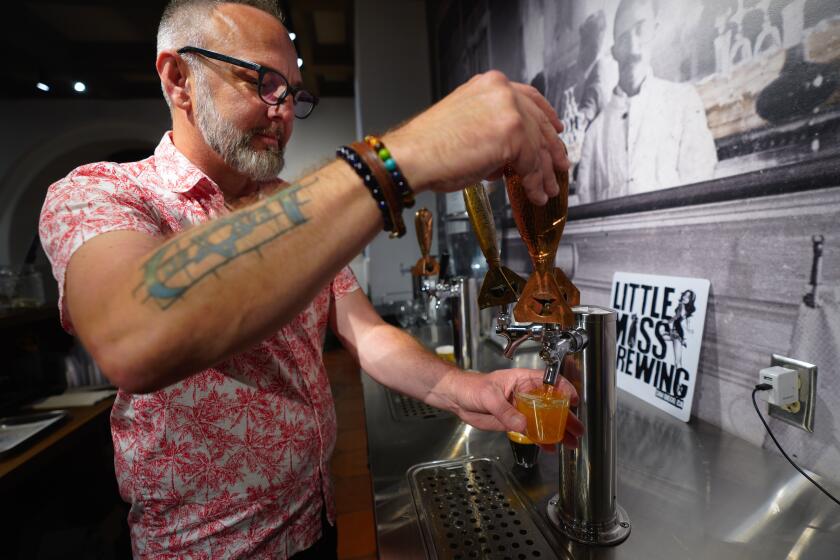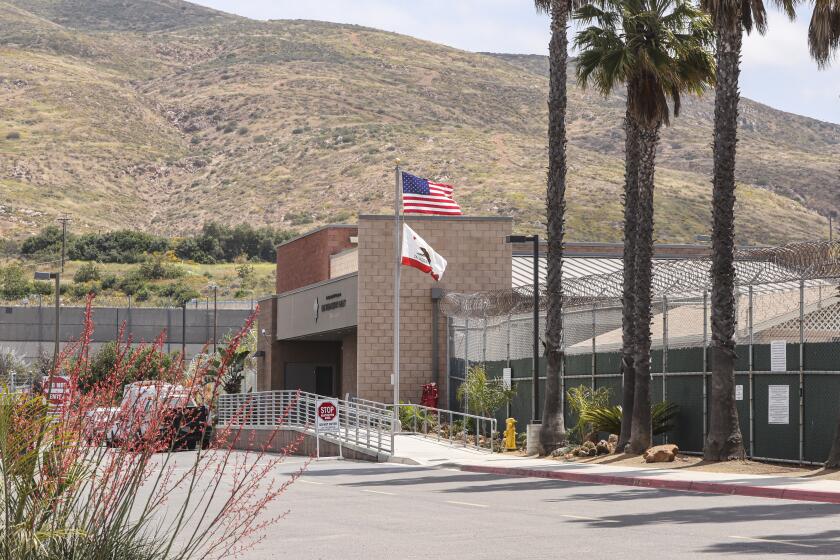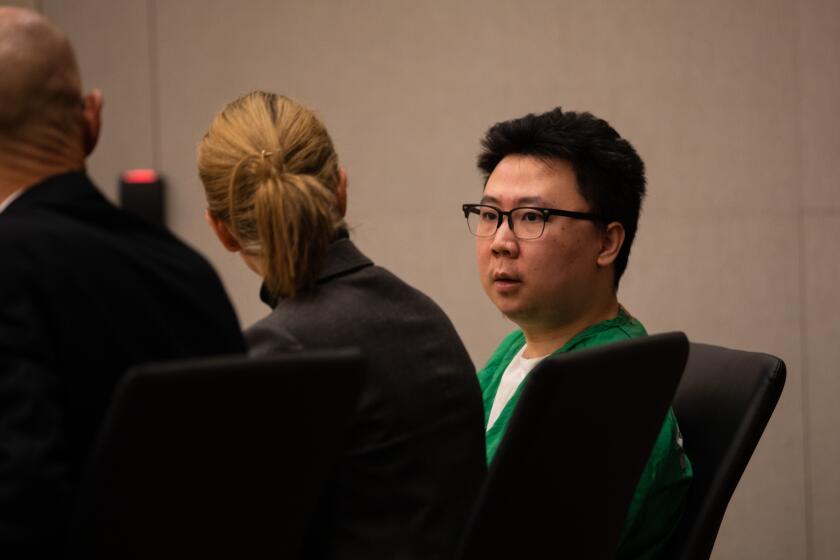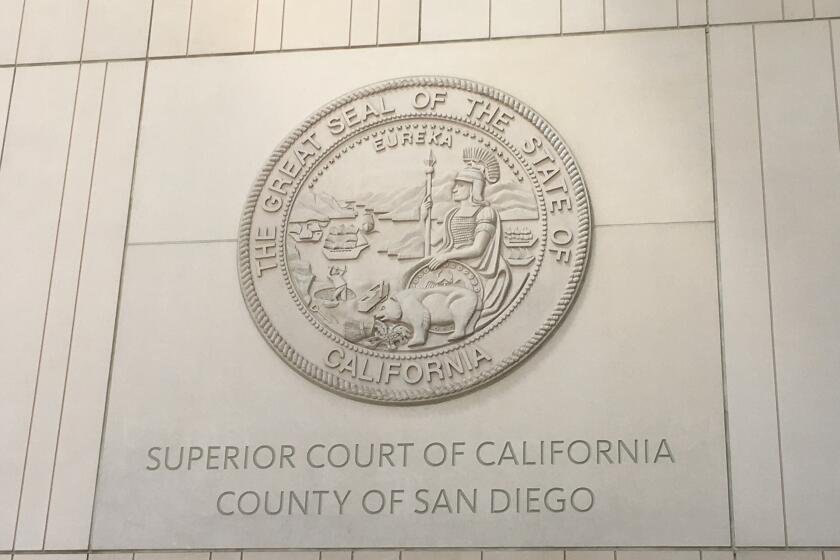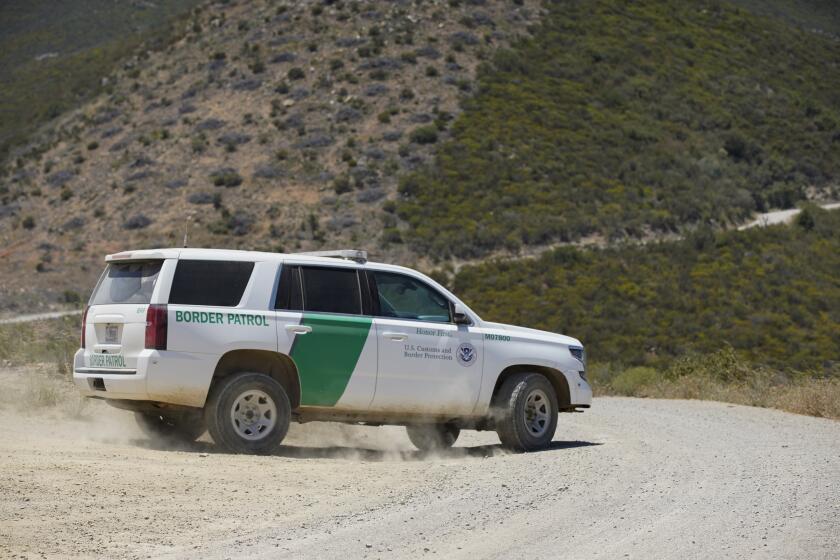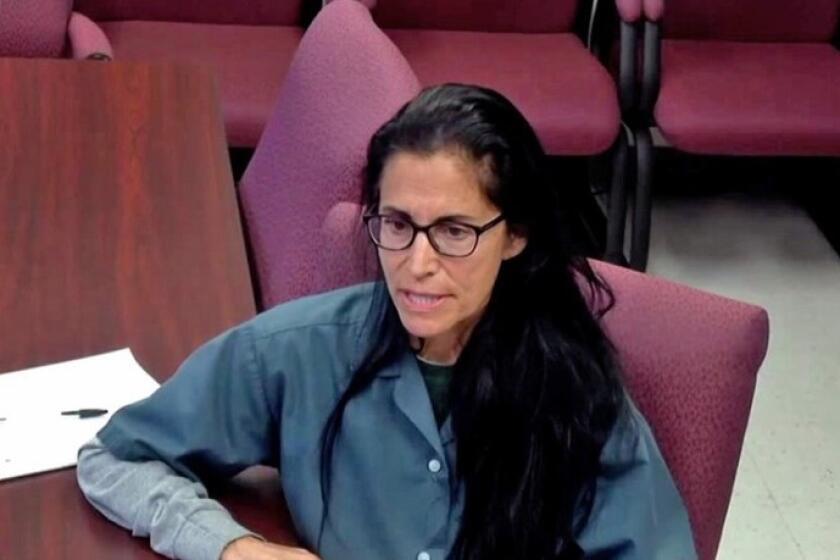Appeals court issues stay, halting judge’s order reopening San Diego County restaurants
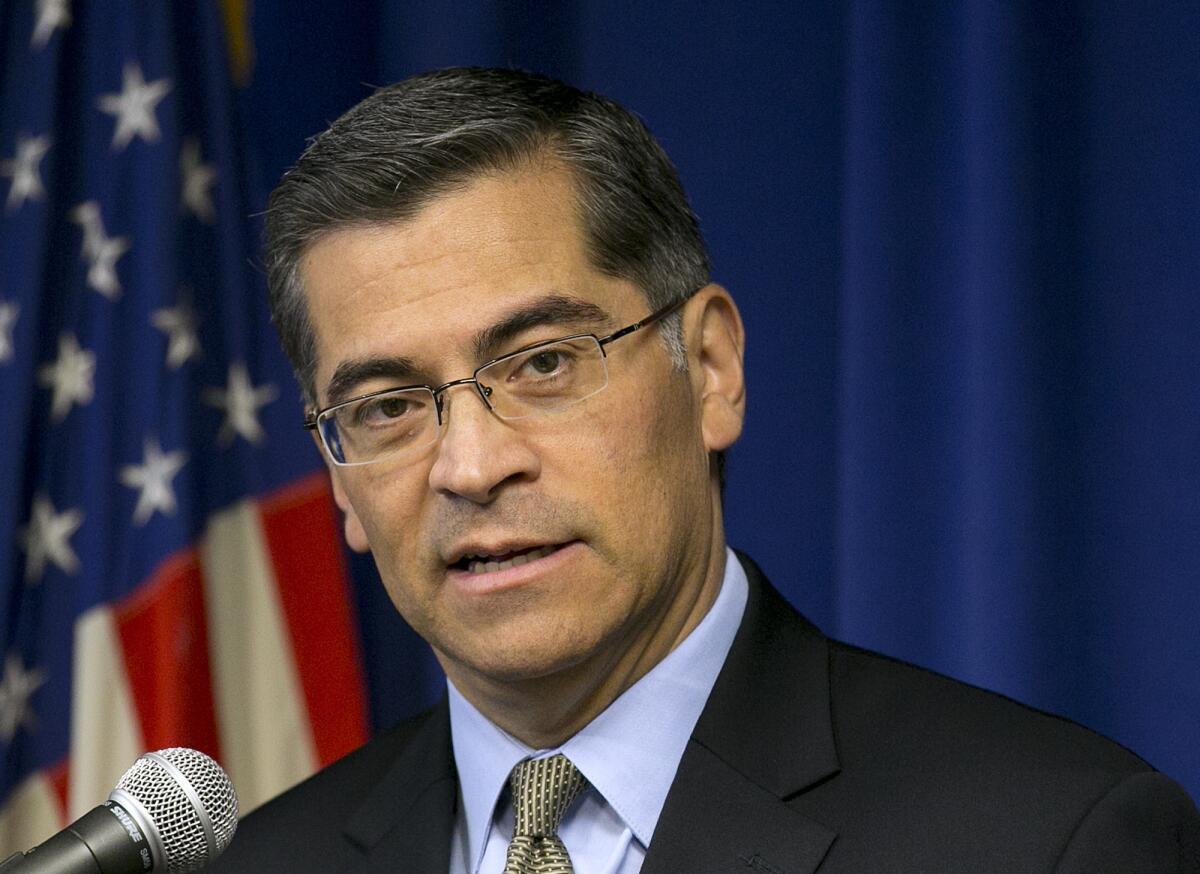
State lawyers say the stay is needed to protect public health as the COVID-19 pandemic surges in the county
A San Diego appeals court on Friday issued a stay, blocking a Superior Court judge’s ruling that had allowed restaurant and live entertainment venues to reopen in the county, and closing a window of opportunity that opened briefly for an industry besieged by the COVID-19 pandemic.
The move by the 4th District Court of Appeal came in response to an emergency application from the state Attorney General’s Office for Gov. Gavin Newsom and the state Department of Health. The stay means restaurants must, again, shut down.
The request for a stay argued that San Diego Superior Court Judge Joel Wohlfeil overreached his authority Wednesday when he issued the injunction prohibiting state and local officials from enforcing restrictions on dining that limited restaurants to providing only take-out service and banned live entertainment.
The state said the move jeopardized the health of county residents because it undercut public health orders aimed at mitigating the spread of the disease.
Wohlfeil’s ruling, which went into effect immediately, came in a lawsuit filed by owners of two San Diego strip clubs, Pacers and Cheetahs, who challenged public health orders that would have largely shuttered their businesses. But the judge took the step of not only siding with the clubs and prohibiting the state from enforcing the restrictions, but applying that order to all restaurants in the county — even though no restaurants were involved in the lawsuit.
Lawyers for the state argued that to include restaurants that were not part of the case before him was “a clear abuse of discretion” by Wohlfeil.
“This unsolicited order against enforcement of basic public health precautions necessary to reduce the spread of COVID-19, at a moment when hospitals in San Diego County and across the State are being overwhelmed, requires immediate action by this Court,” lawyers wrote.
The appeals court gave the clubs until Wednesday to file a response. The state said it plans to fully appeal Wohlfeil’s injunction to eliminate it, but told the appeals court it needed immediate action Friday to protect the public.
Jason Saccuzzo, the lawyer for Pacers, said he was disappointed with the stay and the fact that the performers at the club would have to be told they could not work that night.
“This is a huge blow to them right before Christmas, as well as for all restaurants in San Diego, in what has already been a very tight year for them financially given all the uncertainty caused by the ever changing orders of Gov. Newsom,” he said.
A number of San Diego County restaurants, buoyed by the lower court’s ruling on Wednesday, had reopened their venues for indoor and outdoor dining, only to learn late Friday that their good news was short-lived. John Bedlion, owner of Johnny B’s Burgers, Brews and Spirits in La Mesa, opened his doors Friday for one reason only, because a Superior Court judge told him he could, he said.
“I don’t really want to break the law or anything like that,” Bedlion said of the rapidly changing rules for dining out. “You know, things are hard and I figured I’d take the opportunity to recoup some of the losses we’ve had since they made us go to takeout and delivery (only.) “If they tell us to shut down I will; I will not defy that … if they hadn’t made the order I still would be doing takeout and delivery. It’s that simple.”
Chad Cline, co-owner of several restaurants, including The Waterfront in Little Italy, reopened three of his venues on Friday and brought staff back, including one person whose only job is to sanitize tables. By dinnertime, he was preparing to call employees to let them know to not bother returning to work.
“Now we’re switching back to takeout and figuring out what’s next,” said Cline. “We’re getting pretty good at this emotionally, but it’s a process.”
Adding to the upcoming legal battle was a decision by the county Board of Supervisors, also a defendant in the strip club case, to appeal a portion of Wohlfeil’s ruling that applies to allowing live entertainment and indoor dining.
After a two-hour closed session, the board voted unanimously to appeal the injunction but also said outdoor dining should be permitted. Board Chairman Greg Cox issued a statement explaining that that the board decided Wohlfeil’s ruling was incorrect only as it related to strip clubs and indoor dining.
“We support outdoor dining with appropriate safety protocols that have been previously established,” he wrote.
Supervisor Nathan Fletcher, who has become the face of the county’s COVID-19 response and has been sharply critical of Wohlfeil’s ruling, issued a statement saying that while he supported the appeal that allowed outdoor dining, he wanted the board to go further to appeal the whole ruling.
“It is a positive step that our board voted unanimously to join the state in the appeal as it relates to strip clubs and indoor dining,” he said.
Meanwhile, the pandemic continued its relentless surge across the region. County health officials on Friday reported a record number of new COVID-19 cases — 3,611 — a staggering 744 more than the previous high set Dec. 10. There were 14 more deaths bringing this year’s total to 1,253.
The latest report also shows the gap is widening between those with the disease and those without it in intensive care units. On Friday, 305 patients with COVID-19 were reported in ICUs beds, which was 31 more than those without the disease. Two days earlier, COVID-19 patients outnumbered other ICU patients for the first time this year, when there were 19 more patients with the disease.
The ICU capacity in Southern California is at 0 percent, which has triggered a regional stay-at-home order that will last for at least three weeks or until the region’s capacity meets or exceeds 15 percent.
In the application for a stay, the state argued it was blindsided when Wohlfeil roped restaurants into the case. The lawsuit from Cheetahs and Pacers, filed in October, argued that restrictions on businesses from the state’s plan to lessen the spread of COVID-19 infringed on their First Amendment and other constitutional rights. At the time, the restrictions essentially banned live entertainment in the county.
Courts have recognized adult nude dancing falls under the protections of the First Amendment. In early November Wohlfeil agreed with the clubs and issued a temporary restraining order, allowing them to provide live entertainment.
Since then, the state put in place a new colored tier system, which permits various levels of activity in counties that are pegged to COVID-19 case rates and percentage of positive tests. Then on Dec. 3, with cases surging and concern rising over the diminishing capacity of hospital systems, Newsom issued a regional stay-home order that effectively closed down restaurants and numerous other businesses.
It was against this backdrop that Wohlfeil issued his ruling on Wednesday, freeing restaurants to open again. The ruling contended that the state had not provided evidence that open restaurants were contributing to either the spread of COVID-19 or the shrinking availability of intensive care beds across the 11-county Southern California region.
Lawyers for the state contended in the Friday filing that they were not “on notice that they needed to defend their public health restrictions generally applicable to restaurants.” If they had been they would have provided evidence to support the restrictions, according to the filing.
They also said Wohlfeil improperly used facts from a different case to buttress his ruling. That case was a suit filed by restaurant and gym owners challenging restrictions on bars and restaurants. While a different judge turned down a request for a restraining order in that case, state lawyers said Wohlfeil used facts from the litigation to support his ruling.
The state also argued Wohlfeil was wrong when concluding the restrictions violated the First Amendment rights of the clubs, saying the closures were aimed not at restricting speech but protecting public health.
Legal arguments were little comfort to the battered dining industry. Restaurateur Ben Clevenger, who is also president of the San Diego chapter of the California Restaurant Association, said Friday’s turn of events was not unexpected for the hospitality community.
“After the (lower court) ruling came out, we knew a stay order had a chance of happening,” said Clevenger, owner of Eastbound Bar and Grill in Lakeside. “It was 50-50, but obviously disheartening, and it drains us a little.”
Clevenger said he had reopened his eatery on Thursday, and the reaction from diners was overwhelming — his restaurant was packed.
“That’s because people want to enjoy sit-down dining,” Clevenger said. “It’s been crazy the last two days. People have already made the decision, you’re either going to go out or not.”
He said he hasn’t decided yet whether he will remain open in the coming days, despite the stay from the appellate court.
“We will evaluate it and figure out what we want to do but I’m leaning toward staying open,” he said. “It’s such a hard thing to be told one thing and then you call your staff back that you just laid off and then call them again and tell them they can’t come back. It’s exhausting.”
Staff Writers Sara Butler and Jennifer Ianni contributed to this report.
The latest news, as soon as it breaks.
Get our email alerts straight to your inbox.
You may occasionally receive promotional content from the San Diego Union-Tribune.





